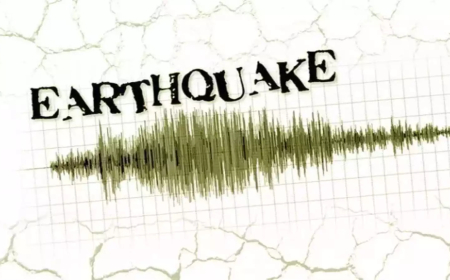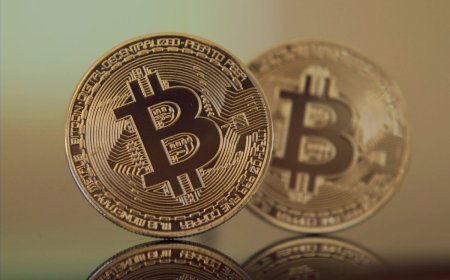Stock Markets Surge Amid India-Pakistan Ceasefire and US-China Agreement
Stock markets experienced a significant rally following the India-Pakistan ceasefire and the US-China trade agreement. Read more about the global market surge and its implications.

Introduction:
The stock markets have experienced an impressive surge recently, driven by two major geopolitical events—the India-Pakistan ceasefire and a landmark trade agreement between the United States and China. These significant developments have instilled confidence in investors, leading to positive market reactions across global stock exchanges. This article delves into the details of both events and analyzes their impact on stock market performance, investor sentiment, and the broader economic outlook.
1. India-Pakistan Ceasefire: A Step Toward Regional Stability
The announcement of a ceasefire between India and Pakistan has had a significant effect on the financial markets. After years of tensions and intermittent skirmishes along the Line of Control (LoC) in Kashmir, the cessation of hostilities between these two nuclear-armed nations has been welcomed as a major step toward regional stability. This peace agreement has reduced the risk of military conflict, which has historically caused significant volatility in the stock markets, particularly in South Asia.
Key Highlights of the India-Pakistan Ceasefire:
-
Reduced Geopolitical Tensions: Investors have long viewed tensions between India and Pakistan as a potential flashpoint that could disrupt regional stability. The ceasefire alleviates fears of escalating military conflict.
-
Improved Investor Confidence: The easing of military tensions has made investors more confident in the stability of the region, encouraging capital inflows into Indian and Pakistani markets.
-
Focus on Economic Growth: With the military standoff temporarily set aside, both nations can now focus on addressing economic issues, which can benefit markets in the long term.
The India Stock Market, particularly Nifty 50 and Sensex, responded positively to the news, climbing as a result of renewed investor optimism. The positive reaction reflects how important political and military developments are in shaping market sentiment.
2. US-China Trade Deal: A Major Boost for Global Markets
Alongside the India-Pakistan ceasefire, another significant driver of market optimism has been the US-China trade agreement. After years of tense negotiations and escalating trade tariffs, the deal marks a breakthrough between the world’s two largest economies. This agreement includes key provisions aimed at reducing tariffs, promoting economic cooperation, and improving market access for both sides.
Key Aspects of the US-China Trade Deal:
-
Tariff Reductions: The agreement includes phased reductions of tariffs that had been imposed on hundreds of billions of dollars worth of goods between the US and China. This provides relief to businesses that had been affected by higher import costs.
-
Boost to Global Supply Chains: With trade tensions easing, global supply chains are expected to become more efficient, benefiting industries that rely on international trade.
-
Positive Impact on Global Stock Markets: The news of the deal was met with enthusiasm across global stock markets. The Dow Jones Industrial Average, Nasdaq, and S&P 500 saw sharp gains, reflecting investors’ newfound optimism about the global economy.
The US-China deal is particularly important for emerging markets like India, as it provides a boost to global economic growth, which in turn benefits countries with strong trade ties. Global trade volumes are expected to increase, leading to higher corporate profits and economic growth in several countries.
3. How the Combination of These Events Affected Global Stock Markets
The India-Pakistan ceasefire and the US-China deal have collectively contributed to a rise in global stock indices. Both events have provided the much-needed stability in the geopolitical landscape, encouraging investors to take a more positive view of the global economic outlook. Let’s break down how these two developments have played out across the stock markets.
Impact on Indian Stock Markets:
-
Sensex and Nifty Surge: Indian stock markets have been buoyed by both the ceasefire and the US-China trade deal. The reduction in geopolitical risks has sparked a rally in Indian equities, especially in defense and infrastructure sectors, which had been under pressure due to security concerns.
-
Foreign Investment Inflows: With less uncertainty around national security, foreign investors have shown more interest in India, resulting in increased foreign direct investment (FDI). This influx of capital has provided further support to the Indian stock market.
Impact on US Stock Markets:
-
Broad Market Rally: The US stock market has seen impressive gains, particularly in sectors such as technology, manufacturing, and consumer goods, which had been hit hard by trade tariffs. The deal promises to restore some stability to these sectors, encouraging growth.
-
Optimism Around Global Economic Growth: As the US and China are two of the world’s largest economies, any resolution to their trade disputes has global implications. Investors are optimistic that the agreement will lead to stronger economic growth, which in turn will fuel corporate earnings and market performance.
Impact on European and Asian Markets:
-
European Market Gains: The European stock market also reacted positively, with indices such as the FTSE 100, DAX, and CAC 40 recording significant upward movement. Investors are optimistic about the potential benefits of a US-China deal, as Europe has strong trade ties with both the US and China.
-
Asian Market Rebound: Asian markets, including those in Japan and South Korea, have seen a rebound. The resolution of trade tensions between the US and China is particularly beneficial for Asian exporters who depend on global supply chains.
4. The Role of Investor Sentiment in Market Performance
Both the India-Pakistan ceasefire and the US-China deal highlight the crucial role of investor sentiment in market movements. Geopolitical risks, such as conflicts and trade wars, have historically caused market volatility. When such risks diminish, investors tend to respond positively, driving stock prices higher.
In this case, the combination of reduced military tensions in South Asia and the resolution of trade disputes between two of the world’s largest economies has significantly improved sentiment across global markets. Investor confidence, which had been shaky due to trade wars and political tensions, has strengthened, leading to a surge in stock market performance.
5. Future Implications for the Stock Market and Global Economy
The positive market movement resulting from the India-Pakistan ceasefire and the US-China deal has important implications for the future. Here are some of the key takeaways:
-
Stability in the Region: The India-Pakistan ceasefire is a hopeful sign for long-term peace in South Asia, which could lead to greater economic cooperation and growth in the region. Investors will likely continue to view India as an attractive market for investment.
-
Boost to Global Economic Growth: The US-China deal has the potential to stimulate global economic growth by boosting trade and investment between the two largest economies. This will likely have a ripple effect across other nations, providing further opportunities for growth.
-
Long-term Market Optimism: As both events contribute to greater stability, stock markets are expected to continue their upward trajectory, although geopolitical developments will still need to be monitored closely. The overall outlook remains positive, with improved sentiment supporting long-term growth in global markets.
Conclusion:
The recent stock market surge, driven by the India-Pakistan ceasefire and the US-China trade deal, underscores the significant role that geopolitical events play in shaping investor sentiment and market performance. The reduction of political and economic risks in two critical regions—South Asia and East Asia—has brought newfound optimism to global investors. As stability returns, stock markets are poised to benefit from increased trade, investment, and economic cooperation. While these developments provide a positive outlook for the future, it’s important for investors to remain vigilant and keep an eye on potential risks that could affect global market dynamics.
What's Your Reaction?

































































